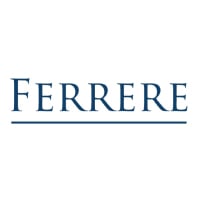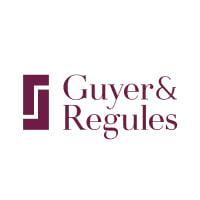

Head of contracts- senior legal counsel | dLocal




Natalia Segredo
Head of contracts- senior legal counsel | dLocal
How do you approach managing legal aspects during periods of instability or crises, and how does your legal strategy align with the broader business strategy to ensure the organisation’s resilience?
Periods of instability are when disciplined contracting, clear escalation paths, and tight cross‑functional alignment matter most, with company-wide, interdisciplinary alignment. I start with rapid risk mapping across our key counterparties and jurisdictions, conducted jointly with compliance, regulatory affairs, risk, commercial and operation teams, then activate pre‑agreed playbooks covering change‑in‑law, force majeure, currency/FX controls, data transfer restrictions, and service continuity. These playbooks pair clause libraries with fallback positions and decision trees so we can respond in hours, not weeks, with coordinated execution across functions.
Equally important is embedding into the business rhythm: I partner with finance, risk, Compliance, regulatory affairs, operations and commercial to maintain a shared heatmap of exposures and a prioritized pipeline (what to renegotiate, where to grant relief, where to exit) aligned enterprise-wide through shared objectives, metrics and risk thresholds. That ensures our legal posture not only reacts to risks but enables an enterprise-wide strategic view and solutions, supporting core objectives—protecting revenue and customer continuity, preserving regulatory standing, and safeguarding critical relationships.
We measure success by speed and quality of negotiations, stability of service to our merchants, and the absence of downstream disputes. In short: pre‑work (playbooks and templates), proximity to the business (shared dashboards and cadences), and principled flexibility (knowing when to hold, when to compromise, and how to document it) make the organization more resilient in volatile markets.
What are the main cases or transactions that you have been involved in recently?
Over the past year, the legal function has focused on high‑impact, multi‑jurisdiction agreements that support growth and resilience. Highlights include:
● Renegotiated several strategic merchant and partner frameworks to rebalance risk allocation amid regulatory and FX volatility, preserving service levels while tightening change‑control and data‑use obligations.
● Rolled out a refreshed contracting baseline (templates and clause library) for cross‑border services, streamlining cycle times and improving consistency around privacy, security, and audit rights.
● Enabled market‑entry readiness by aligning contracting standards to new regulatory requirements and licensing conditions, coordinating closely with Compliance and regional counsel to ensure fast, clean implementations.
● Resolved legacy exposures by remediating aging terms, consolidating addenda, and driving clear service definitions and SLAs—reducing ambiguity and dispute risk.
What measures has your company taken to embed sustainability practices into its core business operations, and how does the role of the general counsel contribute to driving and ensuring sustainable practices within the company?
At dLocal, we treat sustainability as a resilience enabler—baked into governance, risk, procurement, and contracting, not an afterthought. We are building our ESG program around the CSRD framework, including a company‑wide double materiality assessment with Deloitte, clear IRO (impact, risk, opportunity) ownership, and a staged reporting roadmap so disclosures become a repeatable, cross‑functional habit rather than a one‑off project.
We’re also prioritizing vendor and service‑provider relevance through a structured materiality review, ensuring our operational footprint reflects sustainability priorities where it matters most.
Our board‑approved ERM Framework explicitly integrates ESG—climate and sustainability risks sit alongside financial, legal, and operational risks—so the “why” and “how” of sustainability are anchored in enterprise risk appetite and oversight.
Day to day, we operationalize this via the Code of Conduct, Anti‑Corruption Policy, whistleblowing mechanisms, and training/attestation cycles that make ethical conduct and transparent reporting the default behavior across teams and regions.
On third‑party management, our Service Provider Due Diligence Policy codifies privacy‑by‑design, security controls, audit rights, DPAs, and anti‑corruption obligations into selection and contracting—so sustainability “shows up” in who we hire and the terms we sign.
In applicable jurisdictions, we also advance CSR through formal frameworks and oversight, aligning community impact with governance discipline.
The legal department acts as the connective tissue: it translates evolving standards (e.g., CSRD/ESRS) into policies, playbooks, clause libraries, and reporting controls; chair cross‑functional governance so ESG stays aligned to strategy and risk; and uphold accountability via training, investigations, and speak‑up channels.
The legal department hard‑wires these expectations into our templates and negotiations—embedding privacy, human rights, anti‑corruption, and supplier diligence into our contracts—so every agreement we sign advances both commercial outcomes and sustainable practice by design.
How do you prioritise diversity and inclusion within your legal department, and what initiatives have you implemented to foster a more inclusive and equitable work environment?
Diversity and inclusion start with how we work every day. In contracting, the legal department champions plain‑language drafting to improve accessibility and reduce asymmetry in negotiations. We request diverse external counsel teams and panels where feasible, and we mentor across levels to broaden opportunities for underrepresented colleagues.
Internally, the legal department supports structured feedback and consistent calibration in negotiations so people grow through stretch assignments, not just prior exposure. We share playbooks, not tribal knowledge, so outcomes don’t depend on who is “in the room.” Finally, we review templates and processes with an inclusion lens—removing non‑essential barriers and ensuring counterparties understand obligations. A more inclusive process makes better contracts, better partnerships, and a stronger team.